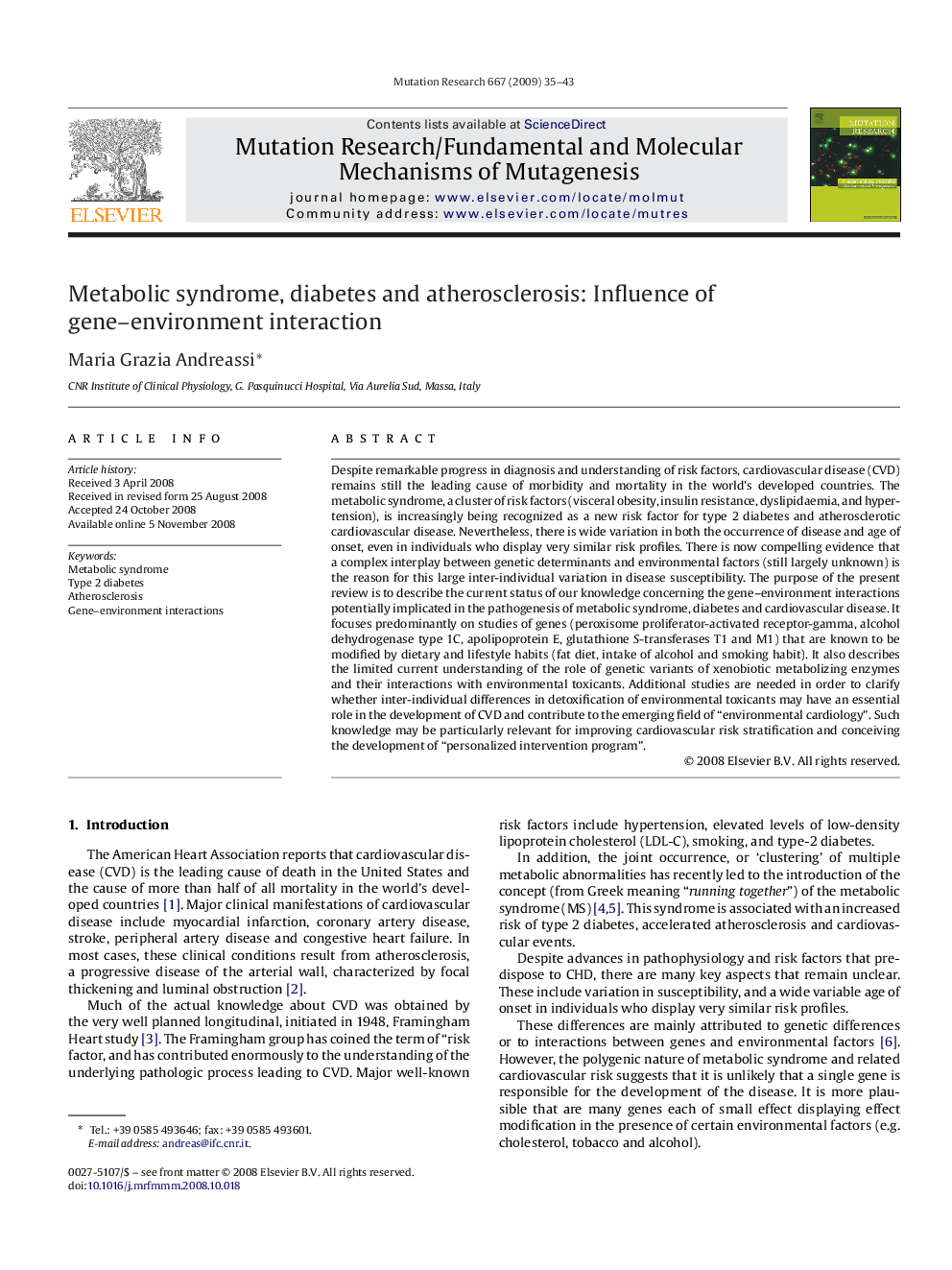| Article ID | Journal | Published Year | Pages | File Type |
|---|---|---|---|---|
| 2146915 | Mutation Research/Fundamental and Molecular Mechanisms of Mutagenesis | 2009 | 9 Pages |
Despite remarkable progress in diagnosis and understanding of risk factors, cardiovascular disease (CVD) remains still the leading cause of morbidity and mortality in the world's developed countries. The metabolic syndrome, a cluster of risk factors (visceral obesity, insulin resistance, dyslipidaemia, and hypertension), is increasingly being recognized as a new risk factor for type 2 diabetes and atherosclerotic cardiovascular disease. Nevertheless, there is wide variation in both the occurrence of disease and age of onset, even in individuals who display very similar risk profiles. There is now compelling evidence that a complex interplay between genetic determinants and environmental factors (still largely unknown) is the reason for this large inter-individual variation in disease susceptibility. The purpose of the present review is to describe the current status of our knowledge concerning the gene–environment interactions potentially implicated in the pathogenesis of metabolic syndrome, diabetes and cardiovascular disease. It focuses predominantly on studies of genes (peroxisome proliferator-activated receptor-gamma, alcohol dehydrogenase type 1C, apolipoprotein E, glutathione S-transferases T1 and M1) that are known to be modified by dietary and lifestyle habits (fat diet, intake of alcohol and smoking habit). It also describes the limited current understanding of the role of genetic variants of xenobiotic metabolizing enzymes and their interactions with environmental toxicants. Additional studies are needed in order to clarify whether inter-individual differences in detoxification of environmental toxicants may have an essential role in the development of CVD and contribute to the emerging field of “environmental cardiology”. Such knowledge may be particularly relevant for improving cardiovascular risk stratification and conceiving the development of “personalized intervention program”.
